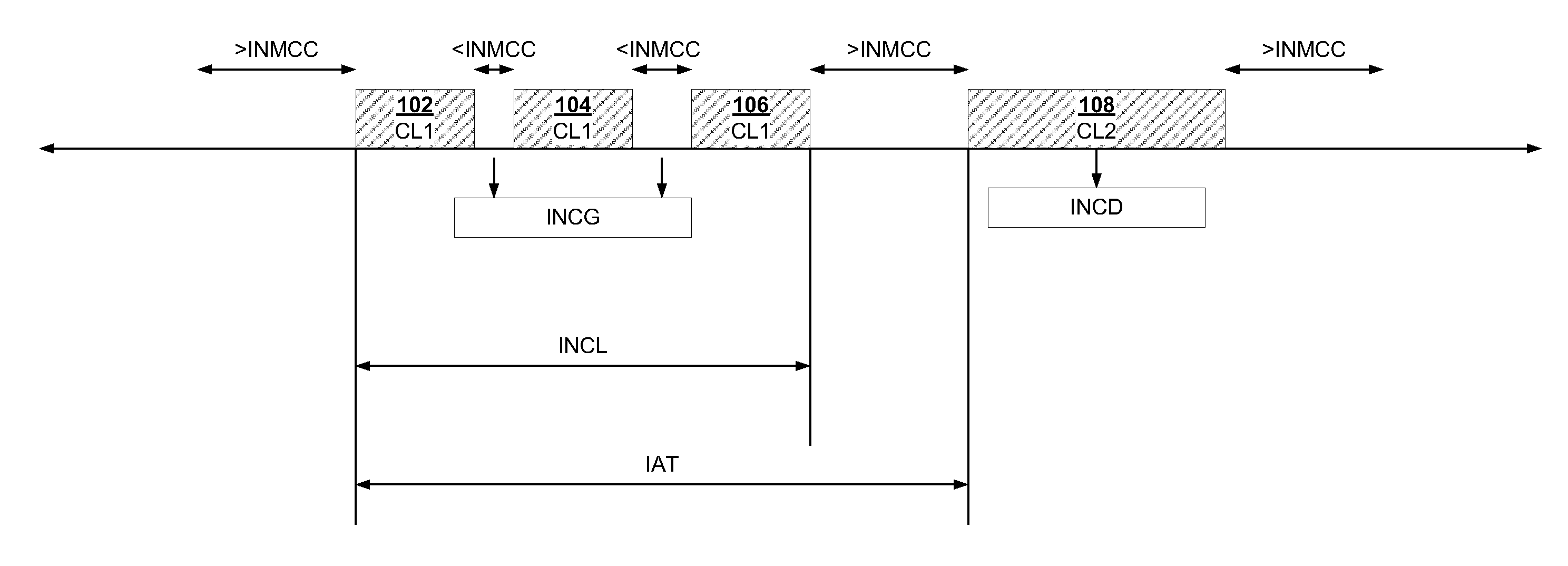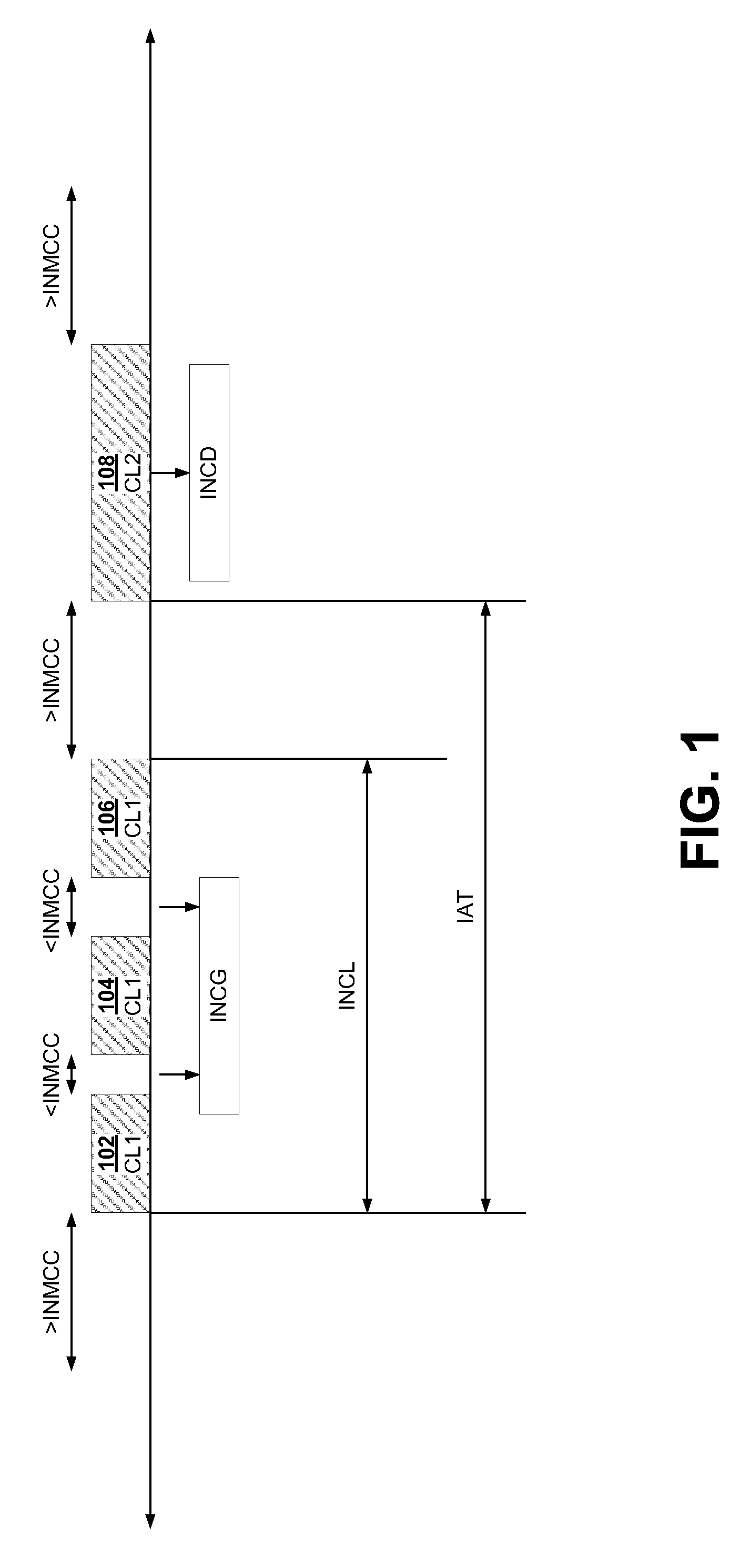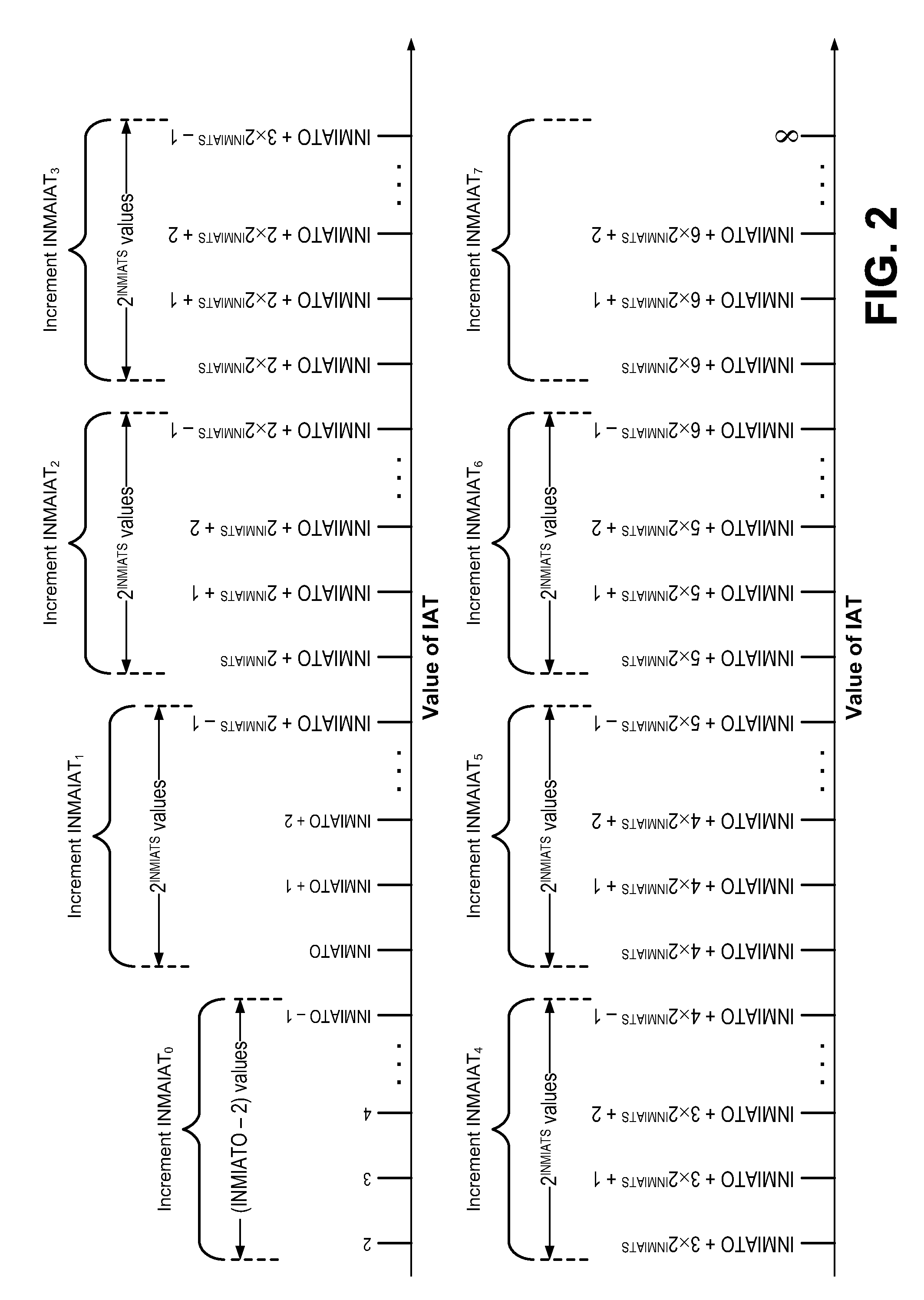Systems and Methods for Impulse Noise Characterization
a technology of impulse noise and system, applied in the direction of noise figure or signal-to-noise ratio measurement, instruments, transmission monitoring, etc., can solve the problems of limiting the reliability of real-time services, severe degradation of dmt symbols received, and the presence of impulse noise in digital subscriber line systems. achieve the effect of minimizing resolution
- Summary
- Abstract
- Description
- Claims
- Application Information
AI Technical Summary
Benefits of technology
Problems solved by technology
Method used
Image
Examples
Embodiment Construction
[0055]A detailed description of embodiments of the present invention is presented below. While the disclosure will be described in connection with these drawings, there is no intent to limit it to the embodiment or embodiments disclosed herein. On the contrary, the intent is to cover all alternatives, modifications and equivalents included within the spirit and scope of the disclosure as defined by the appended claims.
[0056]Reference is now made to FIG. 4, which illustrates an xDSL system in which embodiments for monitoring impulse noise are applied. In the non-limiting example shown in FIG. 4, N end users (or N sets of CPE 410a, 410b, 410c) are depicted where each user 410a, 410b, 410c is referenced using an index m. The end users 410a, 410b, 410c are connected via a loop 402a, 402b, 402c to a CO 430. The CO 430 may include an xDSL access multiplexer (DSLAM), xDSL line cards 440a, 440b, 440c, and other equipment for interfacing with end users 410a, 410b, 410c.
[0057]In accordance w...
PUM
 Login to View More
Login to View More Abstract
Description
Claims
Application Information
 Login to View More
Login to View More - R&D
- Intellectual Property
- Life Sciences
- Materials
- Tech Scout
- Unparalleled Data Quality
- Higher Quality Content
- 60% Fewer Hallucinations
Browse by: Latest US Patents, China's latest patents, Technical Efficacy Thesaurus, Application Domain, Technology Topic, Popular Technical Reports.
© 2025 PatSnap. All rights reserved.Legal|Privacy policy|Modern Slavery Act Transparency Statement|Sitemap|About US| Contact US: help@patsnap.com



